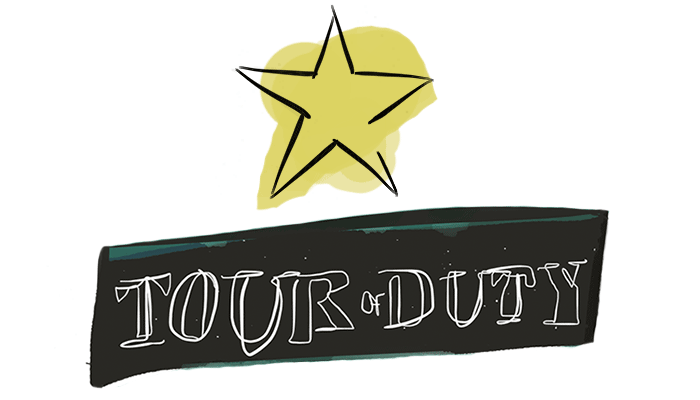
Last week, I handed in my resignation to Dan and Matt. After three years with Tighten, I'll be moving on to work with another company.
At Tighten, we always want to find new ways to improve our company. Whether we're working with people, processes, or tools, we recognize that improvement is not a one-time occurrence, but an ongoing process. One improvement we've talked about a lot lately is how to improve the employer-employee dynamic as we look at each employee's career path.
Leaving Tighten isn't the first time I've gone through a big transition like this. But what felt unique for me this time was the open communication we were able to maintain throughout the process.
One of the factors about Tighten's company culture that made it possible for us to be so transparent in this process is the idea of a "tour of duty," an idea that we first read about in a blog post by Reid Hoffman, co-founder and executive chairman of LinkedIn. The tour of duty as Hoffman describes it "represents an ethical commitment by employer and employee to a specific mission that’s expected to last a finite amount of time."
Many companies expect their employees will stay with them indefinitely. For most companies, this is far from reality, and it's more common than not for employees to eventually move on to new opportunities. "Lifelong employment and loyalty are simply not part of today’s world," Hoffman contends. "Pretending that they are decreases trust by forcing both sides to lie."
Setting our expectations around a tour of duty, instead of lifetime devotion, relieves pressure on employers and employees; this way, we're clearly defining the expectations and benefits for an ongoing relationship. A tour of duty doesn't demand a lifetime commitment; it's a finite amount of time. Hoffman recommends a base expectation of a four-year tour of duty with a discussion at the two year mark. If the "mission" is more short term, a shorter tour of duty may be more appropriate.
At Tighten, all of our team members meet with Dan or Matt every two to three weeks for one-on-ones and we have regular reviews of our performance every six months. It was at these meetings, early in my time at Tighten, that Matt and I began fleshing out what my tour of duty at Tighten would look like. In our initial discussions, the focus was more on specific technical experiences, so the time horizon of these "mini-tours" were more around the length of a typical client project. Over time, my interests shifted to non-technical experiences with longer time horizons.
At each step, Matt and I talked frankly about the ways the setup was and wasn't working for each of us. Where possible, Matt took into consideration areas where I wanted to grow, and assigned me to projects where I would have opportunities to learn and develop. It was a gradual process of self-discovery, of trying on different roles and responsibilities. With each new opportunity, we learned more about what the next step could be.
So when some opportunities started to interest me outside of Tighten, it wasn't a surprise to myself, Dan, or Matt that I decided to explore them. We had been in open conversations about what each side was looking for in the next tour of duty, and it had become apparent that my interests had diverged from what was available at Tighten. One of these opportunities eventually developed into an interview and a job offer, and I'll soon be moving to the next stage of my career after a little bit of time off.
I recognize that my anecdote may not apply in all situations. There are tricky power dynamics present, and it takes both sides adopting this "tour of duty" mindset for it to work. Employers have to let go of this idea that employees will be with their company indefinitely; employees have to take a risk to express what they want to do next. Depending on where you're sitting, the "power" may be with the other party, and it may feel really risky to have an open conversation about interests that may or may not be available at the company.
All that being said, I do think that if both employers and employees can be honest about the temporary nature of their partnership, it can be a powerful force to improve employee retention for the company and also enhance future employability for the employee. In Tighten's case, because both sides were able to freely discuss the purpose and timing of the partnership, I gained valuable work experience that led to my next career step, and Tighten retained (for a longer period than would have otherwise been the case) the employment of a productive contributor to the team (cough humblebrag).
To learn more about "Tours of Duty," check out Tours of Duty: The New Employer-Employee Compact and Tours of Duty: How to Organize Modern Employment.
in your inbox:
let’s talk.
Thank you!
We appreciate your interest.
We will get right back to you.
